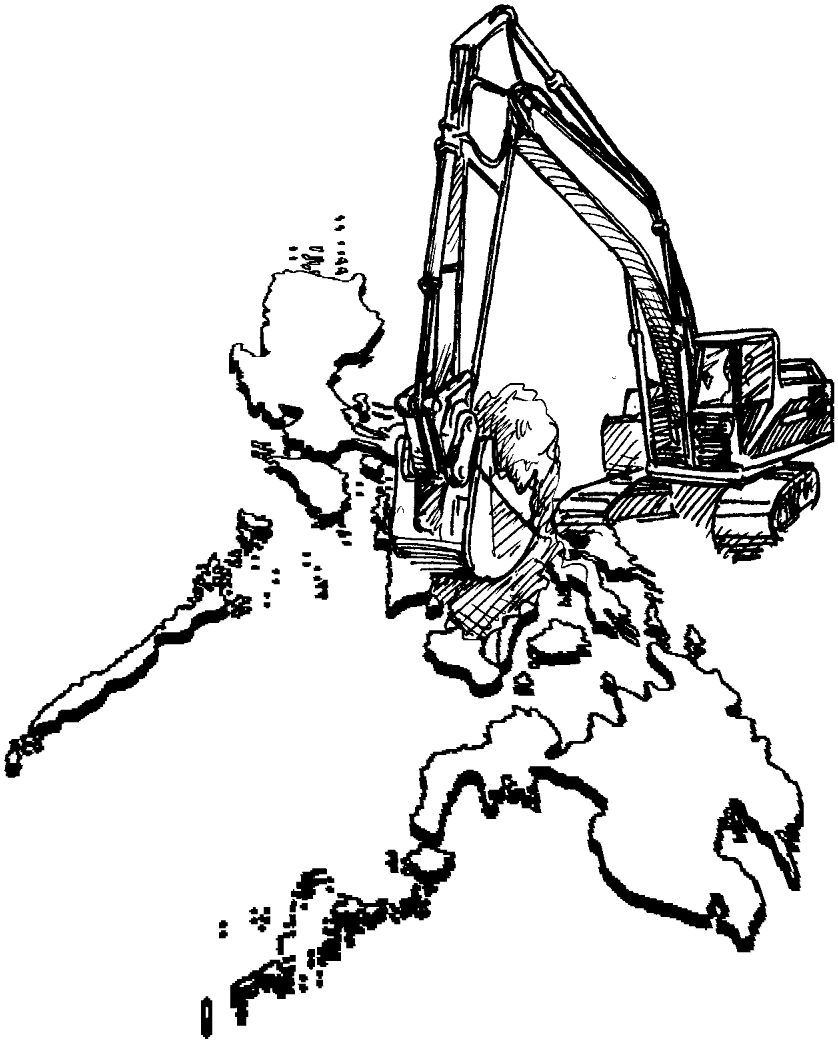
| Home | CPP | NPA | NDF | Ang Bayan | KR Online | Public Info | Publications | Kultura | Specials | Photos |

| |||||||||||||||||||||||
|
|
|
Without a doubt, giant mining companies will devastate the country's mountain systems and remaining forests to appropriate the Philippines' natural resources through the cheapest and fastest means. The Arroyo regime is offering the country's national patrimony on the altar of foreign capitalists to enable the latter to gorge themselves full with the country's mineral wealth. Through a Supreme Court ruling this February, the regime has junked with finality the petition of national minorities, peasants and others opposed to the Mining Act of 1995. This comes as no surprise, especially since the Mining Act's principal sponsor in 1995 was none other than then senator Gloria Arroyo. According to the Kalipunan ng mga Katutubong Mamamayan ng Pilipinas (KAMP), almost 75% of the country's land is covered by applications for Financial and Technical Assistance Agreements (FTAA) now pending with the Department of Environment and Natural Resources (DENR). The FTAA is an agreement between the Philippine government and a mining company that grants the company the right to conduct mining operations on a maximum of 81,000 hectares for 75 years. At present, only two companies have approved FTAAs�-Climax-Arimco Mining Corporation which has ongoing operations in Didipio, Nueva Vizcaya and Sagittarius Mines, Inc. which has operations in Sultan Kudarat, North and South Cotabato and Davao del Sur.  The entry of foreign mining companies into the country poses one of the biggest threats to the lives and livelihood of many peasant and national minority communities. It moreover hastens the monopolization of land in the hands of foreigners and violates the right of peasants and national minorities to their farms and ancestral lands. And wherever foreign companies are present, so is the reactionary military which acts as a mercenary security force for these companies. Mining, rampant militarization and counterrevolutionary programs always go hand in hand. The regime is beside itself computing the anticipated deluge of foreign capital to the local mining industry. The Mining Act is expected to bring in `57 billion in taxes alone and an estimated $6 billion (`330 billion) worth of capital into the country. No mention is made of the fact that the Philippines would be left with nothing but crumbs because these foreign companies will definitely repatriate 100% of their profits. Even the much-vaunted tax income will come down to loose change since the mining companies will be enjoying long-term tax exemptions. Arroyo wants the Filipino people to swallow the influx of foreign mining companies hook, line and sinker. As an inducement, her regime promises to create 200,000 new jobs in mining. Again, no mention is made of the fact that millions of people will be losing their sources of income due to the forcible displacement of entire communities and the destruction of livelihoods, agricultural lands, rivers and forests. Compared to the jobs it creates, the damage wrought by mining to the people's livelihood in surrounding areas is many times bigger. On top of this, most mine workers are contractuals and casuals. The mining sector has the highest number of seasonal workers outside of the agricultural sector. Wages are extremely low, workers' rights non-existent and working conditions extremely harsh and life-threatening. In the face of all this, putting a stop to the Mining Act's full implementation poses a great challenge to the people and the revolutionary movement. It is not only the welfare and livelihood of people presently living that is at stake but those of future generations of Filipinos.

|
| |||||||||
|
[ HOME | CPP | NPA |NDF | Ang Bayan | KR Online |Public Info] [Publications | Specials | Kultura | Photos] The Philippine Revolution Web Central is maintained by the Information Bureau of the Communist Party of the Philippines. Click here to send your feedback. |
|